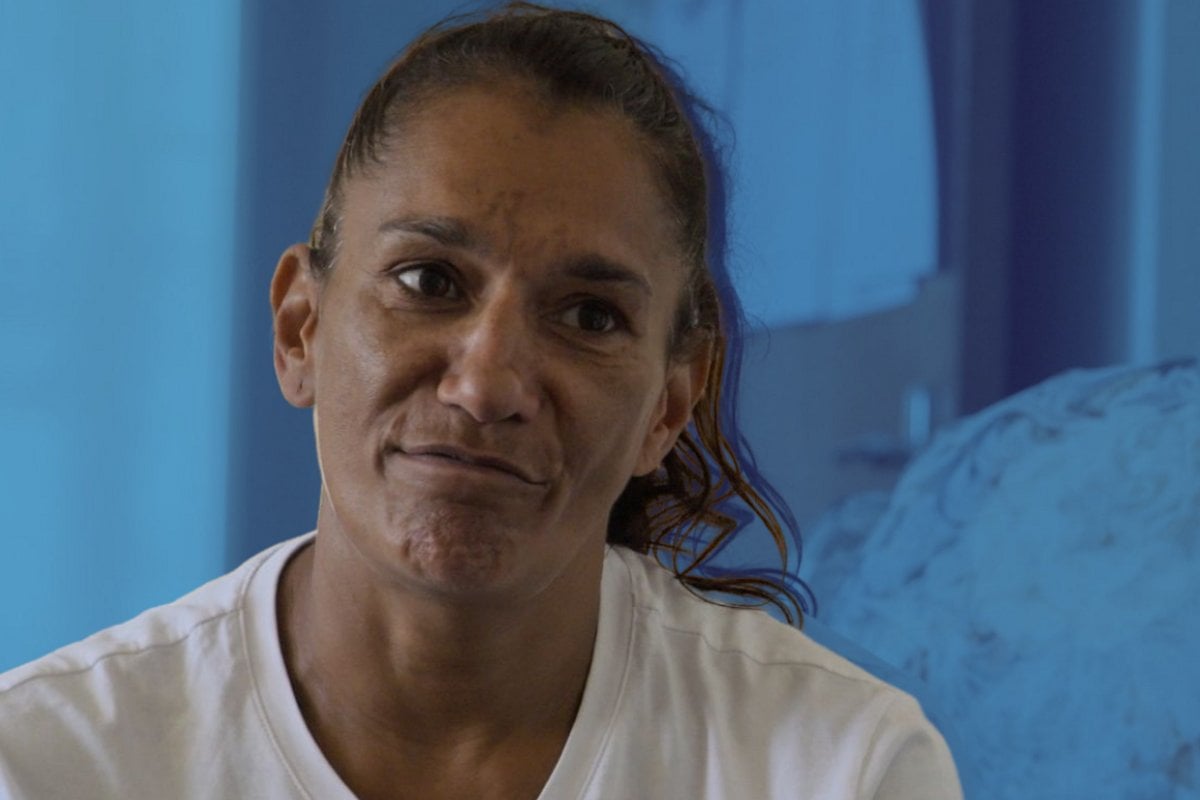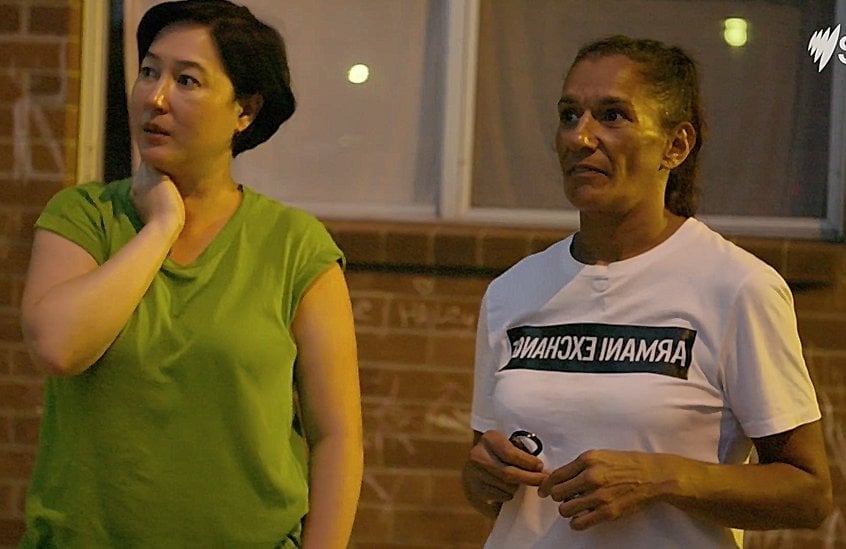
This post deal with domestic violence and may be triggering for some readers.
Shenane never imagined she would be someone who had to live on the dole.
In fact, she used to hear people talking about their struggles living on welfare and think just "go get a job" and move on.
"I won't lie, I used to think get over it, go build a bridge, go get a job. But now [I'm living on it], I'm like sh*t I can't build a bridge and I can't get a job," the 43-year-old told Mamamia.
Watch: Shenane takes NSW Greens MP Jenny Leong through a day in her life in the new SBS documentary Could You Survive On the Breadline? Post continues below.
Before applying for the JobSeeker allowance (formerly known as Newstart) in 2016, Shenane's life looked very different to how it does now.
The mother of six was married and working in Aboriginal community development for her local Parramatta council- a six-figure job she loved.
For the most part, her life was following the way she simply thought it would when she was younger.
"I just assumed you get married, have kids and go to work."


Top Comments